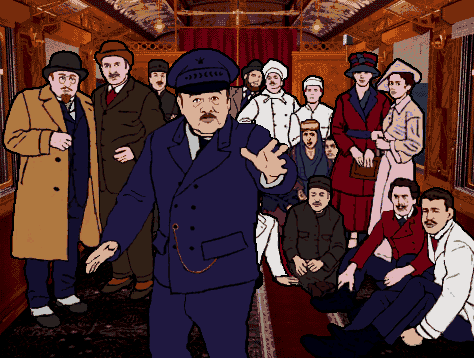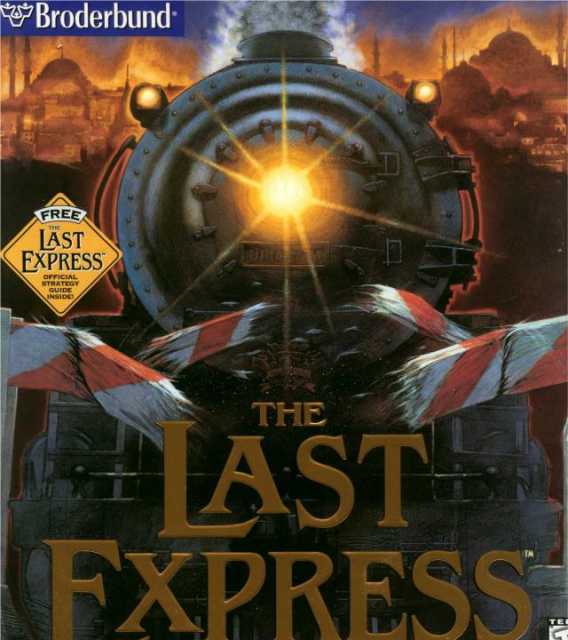Best Game Ever Set on a Train Across Europe
Released to little fanfare -- but some critical praise -- way back in 1997, Jordan Mechner's mystery-adventure masterpiece The Last Express quickly fell under the radar and remains there to this day. It couldn't help that it is a point-and-click adventure game sent out into the world amidst a dying, stagnant, and largely ignored genre. Nor did it benefit from a non-existent marketing campaign -- the story goes that the entire marketing staff of publisher Brøderbund quit the company a short time before The Last Express came out. Even worse, the game adopted an unconventional Art Nouveau appearance, and was set entirely within a train. From the start, it was surely doomed to commercial failure and gaming oblivion.
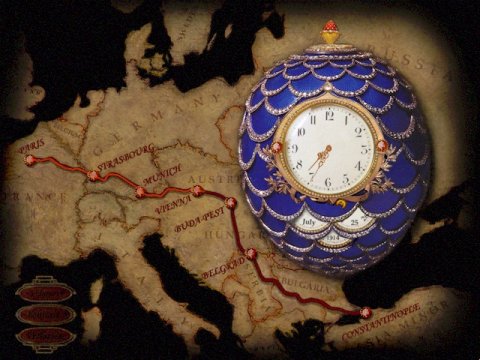
The central plot of the game follows Robert Cath, an American fugitive who must jump from a motorcycle to climb aboard the Orient Express -- a train across Europe -- to find his friend dead in his compartment with a valuable golden egg missing from his belongings. Taking the role of Cath, you must act quickly to hide evidence of the crime and assume the identity of your friend Tyler Whitney. To add to the tension, it is the eve of World War I, and your fellow passengers include four Serbian nationalists, a Prince, and two spies. The rest of the journey involves deciphering the reason for Tyler's murder -- and with it, his killer -- and juggling several subplots, many of which are useful in deciphering the mystery.
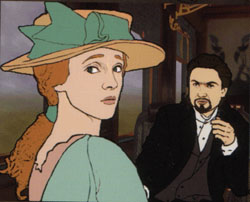
I honestly don't know how to explain what it is that makes these moments of interaction all around you so compelling without spoiling them for the uninitiated. You have to experience them for yourself to understand why this style of storytelling is so suited to games. It is an extension and adaptation of the "show, don't tell" mantra from film, and avoids the stiltedness of audio journals (sorry, Bioshock fans) while building on the idea of using environments to convey story.
The Last Express uses the environment (the train and its individual cars) to give context superbly, and backs this up with character design, required dialogue, and non-essential props like a newspaper and posters. But then it goes a step further and lets you explore the narrative through your decisions of where to be and what to stay and overhear. It takes yet another step beyond that in allowing you to impact on the subplots that continue around you. You can confront characters with certain information (provided you've obtained it, which is by no means required). Or you can use this information to go behind their back (for your own advantage), or simply continue to be a passive observer -- waiting to see what happens next.
Unfortunately the find-your-own-way approach doesn't always work. Certain story events are required, despite the appearance otherwise, and lengthy sections may have to be replayed in order to progress past key points in the timeline. Thankfully this is not as bad as it sounds, since it enables you to explore a different subplot, and the game is not particularly long -- it should be no problem finishing in under 10 hours. But it is still annoying to find that what you wanted to do appears at odds with what you were supposed to do. Sometimes you can anticipate this happening and rewind the clock yourself, an act made easier by the presence of milestones on the clock/menu interface. These milestones act like checkpoints and --barring one or two exceptional circumstances -- indicate that you will not need to return to any time prior to reaching that point.
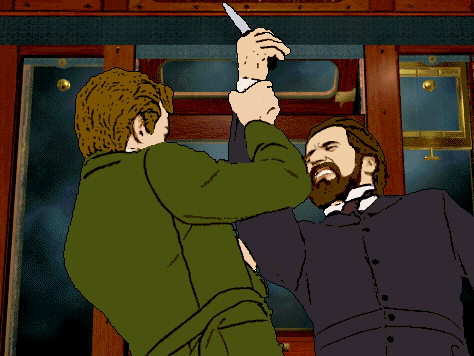
It is sad that an otherwise superbly designed game has such horrendously made action sequences -- which are compulsory, by the way, so don't think you can find some way around them. Thankfully there are only a few action moments, and they are spread through the entire game -- lasting mere seconds each (if you're lucky).
